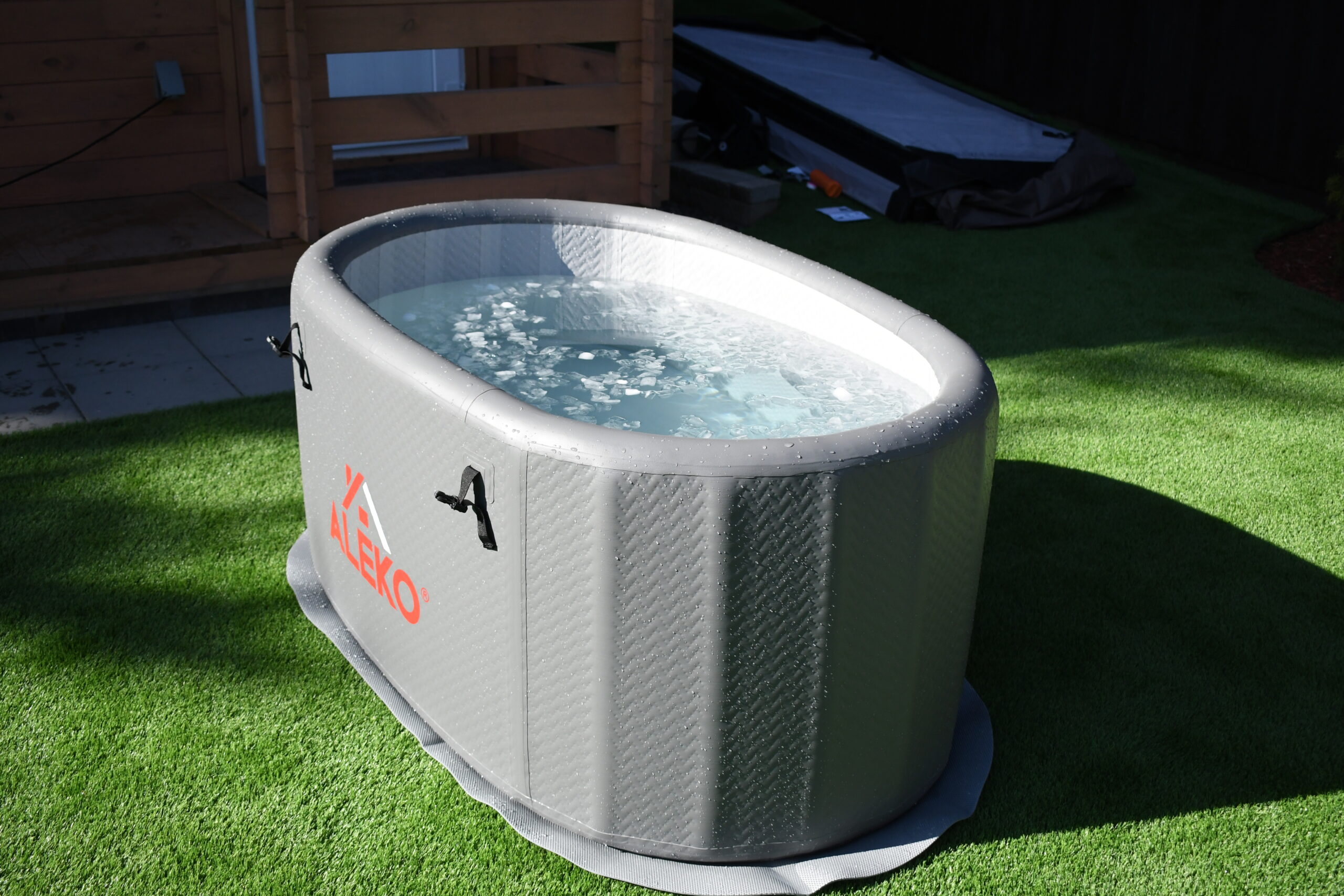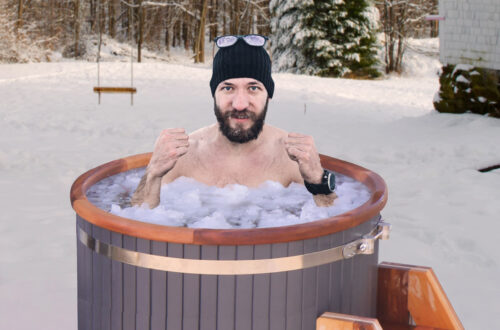Pregnancy is a beautiful journey, but let’s be honest—it’s also filled with questions, concerns, and a whole lot of changes to your routine. From your diet to your exercise regimen, it seems like everything you once did with ease suddenly comes with a side of caution. One question that’s been bubbling up (or rather chilling out) is: Can you do ice baths while pregnant? If you’re a fan of cold plunges or considering it for the first time during your pregnancy, let’s dive into the icy waters of this topic to see whether it’s safe for you and your little one.
The Appeal of Ice Baths: Why Cold Plunges Are a Thing
Before we tackle pregnancy, let’s quickly talk about why people are taking the plunge—literally. Cold plunges, ice baths, and cold water immersion have been gaining popularity, especially among athletes and wellness enthusiasts. The benefits are enticing, to say the least:
- Reduced Inflammation: Ice baths are known for their ability to ease sore muscles and reduce inflammation after intense workouts.
- Improved Circulation: Cold exposure can help promote blood flow, which is great for overall cardiovascular health.
- Boosted Immune System: While a cold plunge doesn’t get rid of a cold, it can alleviate some symptoms. Some proponents claim that regular cold plunging strengthens the immune system.
- Mental Clarity: That icy shock? It wakes up your mind like nothing else, giving you a burst of focus and energy.
But when you’re pregnant, the question changes from “should I?” to “can I?”—and that’s where things get a little more complicated.
Ice Baths During Pregnancy: What You Need to Know
When you’re pregnant, you and your baby’s health come first, always. While cold plunging may be an awesome recovery tool or wellness ritual for some, pregnancy puts your body in a different category. Here are some key things to consider when asking, “Can you do ice baths while pregnant?”
Changes in Core Body Temperature
One of the most significant concerns during pregnancy is your core body temperature. The last thing you want to do is drastically alter it. Whether it’s a hot tub or an ice bath, extreme shifts in body temperature can be risky for both you and your baby. Sudden exposure to cold water could potentially cause your blood vessels to constrict too rapidly, which might interfere with blood flow.
The general advice from healthcare providers is to avoid activities that can cause a sharp increase or decrease in your core temperature, as it could negatively impact your baby’s development.
Safety Concerns: Speak with Your Healthcare Provider
While there are no definitive guidelines on ice baths during pregnancy, it’s crucial to consult your healthcare provider before jumping into any extreme routine. Every pregnancy is different, and what may be safe for one pregnant woman could be risky for another. They’ll know your medical history, any potential risks like gestational diabetes or high blood pressure, and be able to guide you accordingly.
If your healthcare provider gives you the green light, you might still want to tread cautiously and start slow. Cold plunging might not be ideal for pregnant women, but if you’re eager to try it, keep things cool—just not too cool!
Benefits of Cold Therapy for Pregnant Women
With all the safety concerns out of the way, let’s explore the potential benefits (because, yes, there are a few!) of cold therapy during pregnancy:
- Swelling Relief: Many pregnant women experience swelling, particularly in their legs and feet. Cold water exposure can help reduce that swelling by constricting blood vessels and reducing inflammation.
- Sore Muscles: Pregnancy takes a toll on your body—your back aches, your feet throb, and your legs might cramp. Short, controlled cold therapy can help soothe those sore muscles.
- Mental Relaxation: Cold therapy has also been linked to better stress management. And honestly, anything that helps reduce pregnancy-related stress is worth considering, right?
Ice Baths vs. Cold Showers: What’s the Difference?
If the idea of jumping into an ice bath while pregnant feels extreme (and it probably should), there’s a middle ground: the good ol’ cold shower. It’s less intense but still offers some of the same benefits without drastically lowering your core body temperature. Here’s how cold plunges and cold showers stack up against each other:
- Cold Showers: A great way to get your feet wet without fully submerging yourself in icy water. A cold shower might help relieve swelling, boost your circulation, and refresh your mind without the shock of a full-on cold plunge.
- Ice Baths: If your healthcare provider gives you the go-ahead, an at-home cold plunge can provide more concentrated relief, particularly for tired, swollen feet or legs. But keep the immersion time short, and don’t go too cold!
Cold Plunges and Pregnancy: The Risks
As intriguing as cold plunging sounds, it does come with risks, particularly during pregnancy. Here are a few things to keep in mind:
- Blood Pressure Fluctuations: Exposure to cold water can cause your blood vessels to constrict, which might lead to changes in blood pressure. Pregnant women already experience fluctuations in blood pressure, so adding cold exposure into the mix could exacerbate this.
- Shock to the System: A sudden drop in temperature, like what you experience in an ice bath, can shock your body. During pregnancy, your body is already working overtime, and adding more stress could lead to unwanted complications.
- Cold Water Immersion Time: Even if your doctor approves short bouts of cold therapy, you’ll need to keep your time in the water minimal. Long exposure could dangerously lower your core temperature.
Are There Alternatives to Ice Baths While Pregnant?
If you’re craving the benefits of cold therapy but aren’t sure if it’s safe during your pregnancy, don’t fret. Here are a few alternative options that may be safer:
- Warm Water Baths: Opt for warm water baths instead of cold. Make sure the water isn’t too hot—lukewarm is best. It’ll provide relaxation without affecting your body temperature.
- Cold Compresses: For targeted relief, use cold compresses on swollen areas like your ankles or feet.
- Swimming: Swimming in a pool can offer similar benefits without the intensity of an ice bath. It helps reduce swelling, improves blood circulation, and provides light exercise.
What About Contrast Therapy?
If you’re used to alternating between a hot tub and an ice bath as part of your contrast therapy routine, pregnancy is the time to reconsider. Sudden shifts from hot to cold can be jarring to the body and are not recommended during pregnancy due to the drastic changes in body temperature.
Instead, consider alternating between lukewarm showers and short cold bursts if you’re still seeking that refreshed feeling. This approach is much gentler on your system but still provides some of the circulation-boosting benefits.
Conclusion: Ice Baths and Pregnancy—A Cold, Hard Truth
So, can you do ice baths while pregnant? The short answer: probably not, but it depends. While cold therapy offers various benefits like reduced inflammation, pain relief, and better blood circulation, it’s also associated with risks—especially during pregnancy when your body is in a delicate state. Your best bet is to consult your healthcare provider before trying any form of cold exposure. If they approve, remember to start slow and keep the immersion time short.
Looking to create a relaxing at-home spa experience that’s both safe and soothing? Check out ALEKO’s range of wellness products, including portable cold plunges and indoor saunas, to customize a routine that works for you. Visit our website to find the perfect products for your wellness journey.
References
1Hohenauer, E., Taeymans, J., Baeyens, J. P., Clarys, P., & Clijsen, R. (2015). Cold-water immersion and recovery from strenuous exercise: A meta-analysis. British Journal of Sports Medicine, 49(13), 822-829. https://pubmed.ncbi.nlm.nih.gov/21947816/
2Costello, J. T., Baker, P. R., Minett, G. M., Bieuzen, F., Stewart, I. B., & Bleakley, C. (2015). Whole-body cryotherapy (extreme cold air exposure) for preventing and treating muscle soreness after exercise in adults. The Cochrane database of systematic reviews, 2015(9), CD010789. https://doi.org/10.1002/14651858.CD010789.pub2
3Kox, M., van Eijk, L. T., Zwaag, J., van den Wildenberg, J., Sweep, F. C., van der Hoeven, J. G., & Pickkers, P. (2014). Voluntary activation of the sympathetic nervous system and attenuation of the innate immune response in humans. Proceedings of the National Academy of Sciences, 111(20), 7379-7384. https://doi.org/10.1073/pnas.1322174111
4Hohenauer, E., Taeymans, J., Baeyens, J. P., Clarys, P., & Clijsen, R. (2015). Cold-water immersion and recovery from strenuous exercise: A meta-analysis. British Journal of Sports Medicine, 49(13), 822-829. https://pubmed.ncbi.nlm.nih.gov/21947816/






